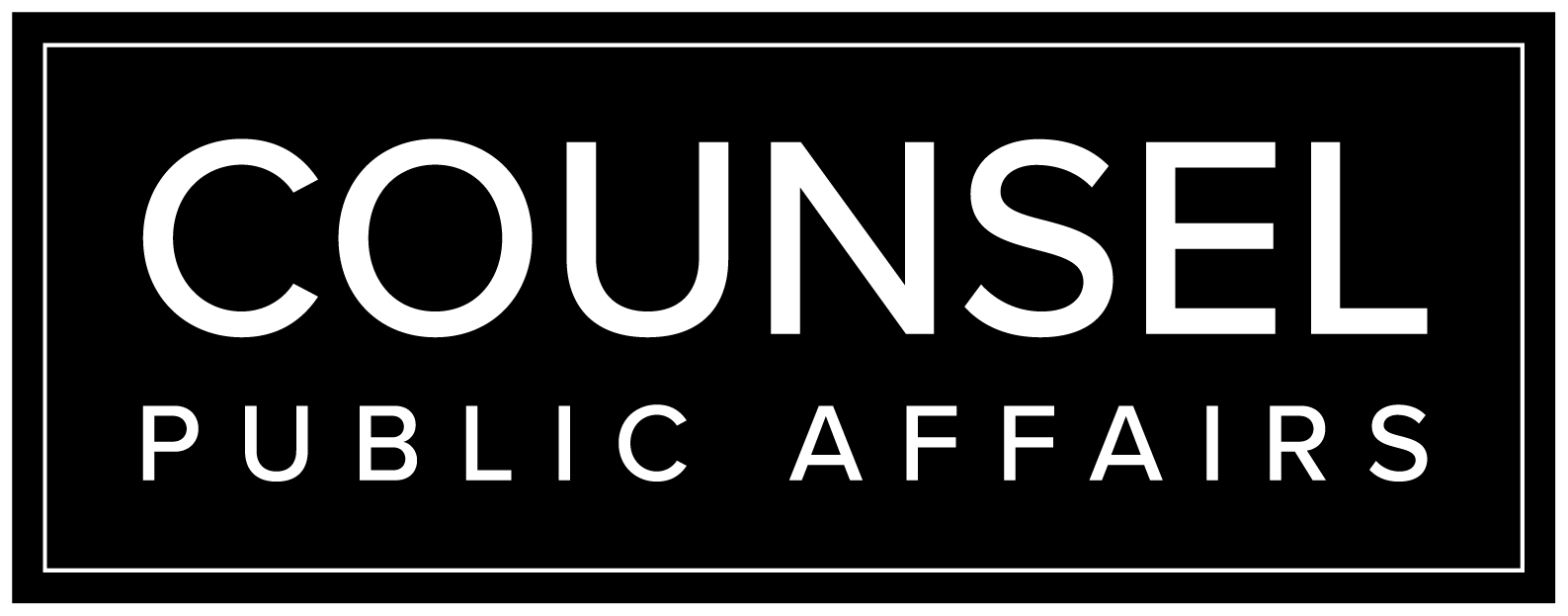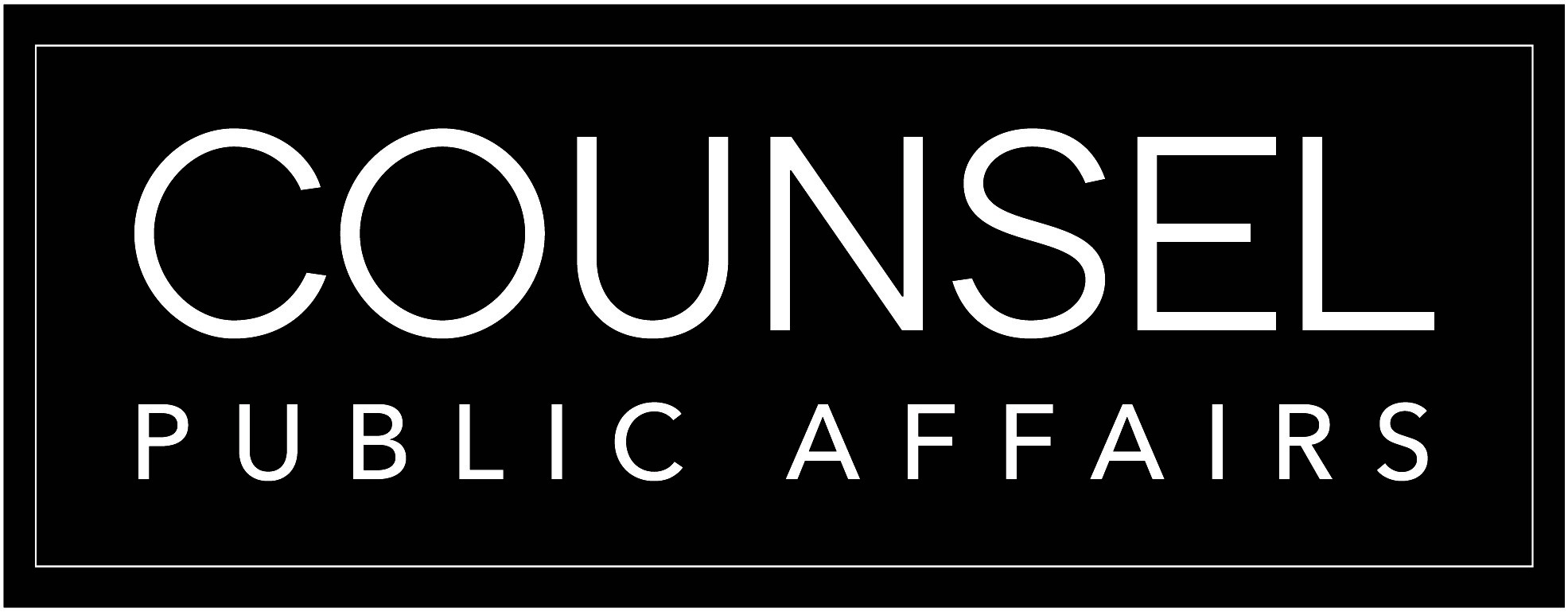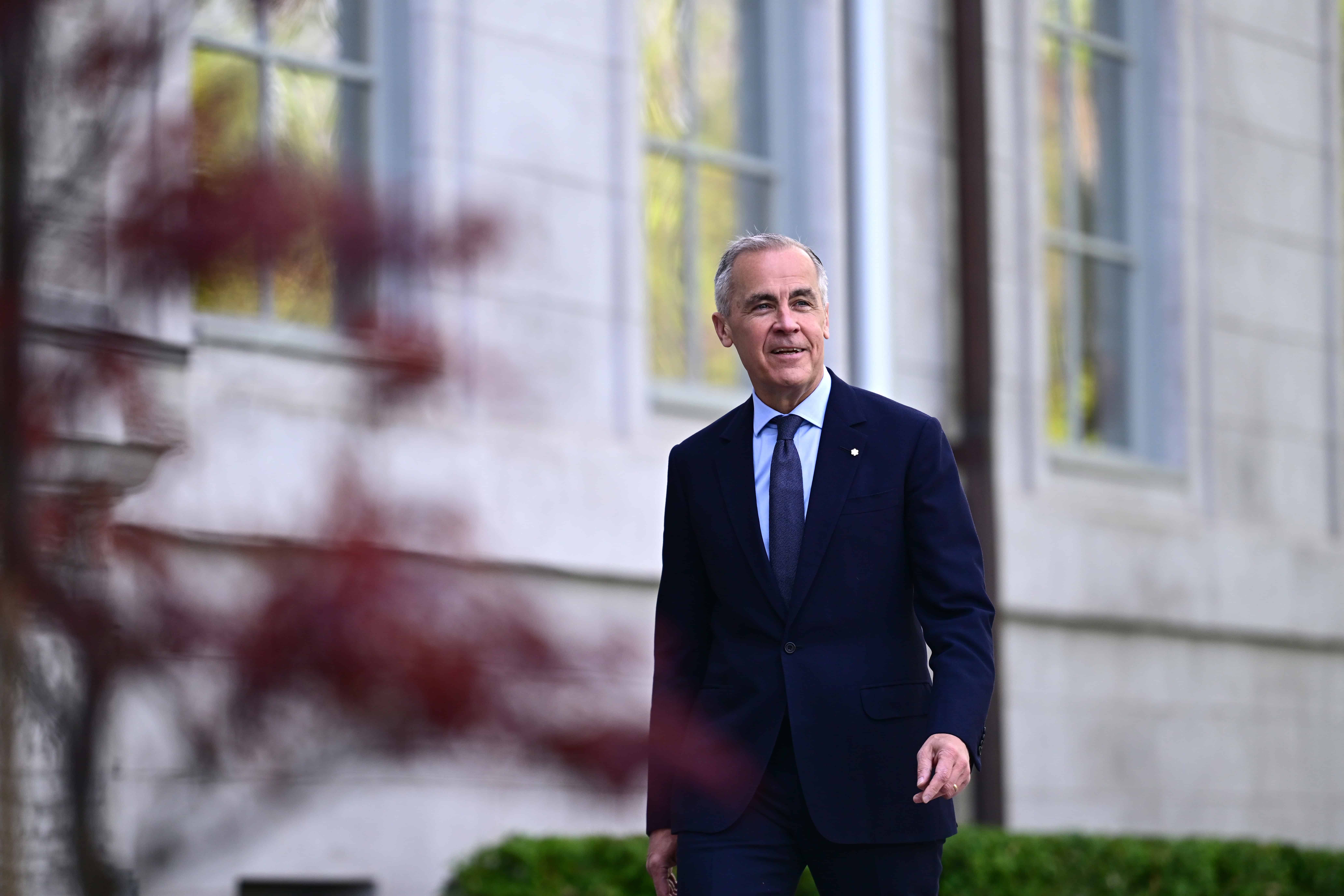Post-election cabinet shuffle signals dramatic transition from Trudeau government
Currently only two seats shy of a majority government, Prime Minister Mark Carney has selected a dramatically different “change cabinet” ahead of Parliament’s return on May 26th, marking a significant departure from the Trudeau government.
Carney’s new ministry maintains continuity with the critical relationships built by Dominic LeBlanc on the Canada-US file and Intergovernmental Affairs. However, nearly every other file contains MPs that are either new to the role or were chosen shortly before the federal election and will only now have the chance to deliver on their files.
The new cabinet is chosen at a time of crisis and opportunity for Canada as the country continues to be hit with the impacts of the trade war and stalling investment. As Carney has stressed, this may be the most consequential period in Canadian political history; the team he has selected will be tasked with delivering a transformational agenda for the economy and our place in the world.
Carney has imported the UK practice of a two-tier cabinet, bringing back the “Secretary of State” role for an outer cabinet who will not take part in all major cabinet meetings or cabinet committees, but can be tapped in on specific issues or government-wide decisions that are related to their portfolio.
The cabinet also restores gender parity and includes representation in politically important regions of the country where the Conservative opposition made inroads in the last election, especially Brampton which now has three MPs in cabinet.
Who’s new?
Tim Hodgson – Minister of Energy and Natural Resources. The former chair of Ontario electricity utility Hydro One and Goldman Sachs Canada CEO has emerged as major new power player in the Carney cabinet. Hodgson has close ties to the Ontario government and will be a credible interface with energy industry players, as Carney seeks to deliver on ambitious plans to build new clean and conventional energy projects.
Gregor Robertson – Minister of Housing and Infrastructure and Minister responsible for Pacific Economic Development Canada. The former Vancouver Mayor has been tapped to lead Carney’s plan to transform Canada’s housing sector with a major focus new rental housing and on prefabricated housing to reduce building costs and emissions.
Julie Dabrusin – Minister of Environment and Climate Change. Elected in 2015 in the Toronto—Danforth riding, Dabrusin’s appointment will please environmentalists but will spark concern in the conventional energy sector. She has strong policy foundations to build on, having previously served as a Parliamentary Secretary in this portfolio.
Marjorie Michel – Minister of Health. Michel was the Former Deputy Chief of Staff to Prime Minister Trudeau and won his former seat in Papineau. She played an important role in the Liberal campaign as deputy campaign director and can take considerable credit for the Liberal party’s strong results in Quebec. In 2016, Michel was a policy advisor to Health Minister Jean-Yves Duclos. Now as minister, she will need to continue negotiations with the provinces on pharmacare and contend with the Trump administration’s sabre rattling on pharmaceutical tariffs. She will be less likely to step on provincial toes and respect the line between provincial and federal jurisdiction.
Evan Solomon- Minister of Artificial Intelligence and Digital Innovation and Minister Responsible for the Federal Economic Development Agency of Southern Ontario. The former political talk show host will apply his considerable communications skills to working with Canada’s tech sector to apply AI to government service delivery. He may also be charged with picking up the pieces of the failed AI legislation that stalled in the last parliament.
Lena Metlege Diab – Minister of Immigration, Refugees and Citizenship. The Halifax West MP is a former immigration minister in the Stephen McNeil government. She will inherit an immigration file that has undergone major changes in recent years after the post-pandemic excesses of the Trudeau government, reining in temporary foreign workers and international student admissions to Canada that impacted the housing shortage across Canada.
Joël Lightbound – Minister of Government Transformation, Public Works and Procurement. Representing the Quebec City area riding of Louis-Hébert, Lightbound has served as a Parliamentary Secretary for Finance and was a notable contrarian in the Liberal caucus regarding how impactful the Trudeau government’s economic recovery efforts were during the pandemic.
Rebecca Alty – Minister of Crown-Indigenous Relations. As the former Mayor of Yellowknife, Alty is recognized as a community builder and rose to prominence as an eloquent voice on northern economic development issues in her time in office. Her singular efforts at managing the crisis of northern wildfires that ravaged significant parts of her municipality bolstered her reputation for effective leadership.
Mandy Gull-Masty – Minister of Indigenous Services. She joins cabinet representing the northern Quebec riding of Abitibi—Baie-James—Nunavik—Eeyou and previously served as the Grand Chief of the Grand Council of the Crees. Gull-Masty will be charged with the continued devolution of control of health care and education services to First Nations communities.
Heath McDonald – Minister of Agriculture and Agri-Food. Elected in 2021 federally to represent the riding of Malpeque in PEI, McDonald is a former provincial Minister of Finance and Economic Development and Tourism.
Rebecca Chartrand – Minister of Northern and Arctic Affairs and Minister responsible for the Canadian Northern Economic Development Agency. The lone Manitoba MP in cabinet represents the northern riding of Churchill—Keewatinook Aski. Chartrand is an Anishnaabe educator and artist who has held senior roles in K-12 and postsecondary institutions and Indigenous organizations including Indspire.
Eleanor Olszewski- Minister of Emergency Management and Community Resilience and Minister responsible for Prairies Economic Development Canada. – the Edmonton lawyer is Alberta’s lone representative in cabinet and will oversee the effort to rebuild Jasper following the devastating wildfires that have become an annual occurrence on the prairies.
Shafqat Ali – President of the Treasury Board. The Brampton based MP takes on the important role of overseeing government operations, reviewing government spending and approving regulations, signalling the importance of the region to the government after losing ground to the Conservatives in the recent election.
Maninder Sidhu – Minister of International Trade. Also from Brampton, Sidhu will need to rely on his background in entrepreneurship and international trade consulting to firm up key trade deals with allies as a counterbalance to the United States.
Jill McKnight – Minister of Veterans Affairs and Associate Minister of National Defence. McKnight is the former executive director for the Delta Chamber of Commerce and holds many relationships throughout the politically important Lower Mainland that will be critical to the Liberals as they move into a new mandate.
Wayne Long – Secretary of State (Canada Revenue Agency and Financial Institutions). Long led the Liberal MP insurgency against Trudeau. His inclusion in cabinet reinforces Carney’s desire to signal difference from the previous administration.
Ruby Sahota – Secretary of State (Combatting Crime). Sahota has been an MP since 2015 representing the riding of Brampton North. Sahota has previously served in cabinet and held the position of Chief Government Whip.
John Zerucelli – Secretary of State (Labour). The Etobicoke North MP was Director of Operations to Prime Minister Trudeau and Ontario Premier Dalton McGuinty prior to a successful stint in the private sector. He will be charged with forging new relationships with private sector unions which have drifted into the Conservative camp under Poilievre’s leadership.
Adam van Koeverden – Secretary of State (Sport). The former Olympian burnished his reputation for strong stakeholder relations as Parliamentary Secretary in the Health Canada portfolio. Prior to his time in office, he was one of Canada’s most effective advocates for the benefits of physical fitness and the importance of supporting and recognizing Canada’s Olympic teams. The 2026 Winter Olympics will be an important moment for Canada in the face of national unity threats in both Alberta and Quebec.
Randeep Sarai – Secretary of State (International Development). Representing the fastest growing area in BC, Sarai has been in politics since 2015, but his appointment signals a growing interest for the Liberals in Surrey, an area where the Liberals have seen their vote share erode to the Conservatives.
Stephanie McLean – Secretary of State (Seniors). This former Alberta NDP cabinet minister was elected in the Vancouver Island riding of Esquimalt—Saanich—Sooke. In her former provincial roles as minister for the Status of Women and Service Alberta, she was an eloquent advocate for gender equality issues.
Buckley Belanger – Secretary of State (Rural Development). The Liberals’ lone MP from Saskatchewan, the former provincial NDP cabinet minister is of Métis descent and represents the Northern riding of Desnethé—Missinippi—Churchill River.
Nathalie Provost, Secretary of State (Nature). Provost was a star candidate as the leader of PolySeSouvient, a gun control advocacy organization formed by survivors of Ecole Polytechnique’s Montreal massacre. She will oversee the conservation file, fulfilling the government’s ambitious goals to protect 30% of Canada’s land by 2030 by adding new National Parks and marine protected areas.
Stephen Fuhr Secretary of State (Defence Procurement). Fuhr was a pilot in the Royal Canadian Air Force (RCAF) and former Member of Parliament for Kelowna-Lake Country. Fuhr also has experience working in the private sector as an executive at a Canadian aerospace company and will be charged with Carney’s goals to overhaul defence procurement on the path to meeting our NATO 2% of GDP spending commitment.
Anna Gainey – Secretary of State (Children and Youth). Gainey is a former President of the Liberal Party and staffer in the Paul Martin government. She’s been actively engaged in political operations and policy development for the party over two decades.
Who’s staying put?
Francois-Philippe Champagne – Finance and National Revenue. Champagne touted his partnership with Carney during the leadership campaign and his reward is delivering a long-overdue first budget. Champagne’s network of relationships from his time as ISED minister will ensure that industry’s voice is represented in the new budget, although Carney will be directly involved.
Dominic Leblanc – President of the King’s Privy Council for Canada and Minister responsible for Canada-US Trade, Intergovernmental Affairs and One Canadian Economy. The strongest point of continuity with the Trudeau government, Leblanc’s relationship-building acumen now spans provincial and continental borders.
Chrystia Freeland – Transport and Internal Trade. The former Finance Minister has kept her position in Cabinet and will lead the government’s commitment to remove federal internal trade barriers by Canada Day. She will also work to build trade-enabling infrastructure including ports, airports, highways and rail.
Steven Guilbeault – Canadian Identity and Culture and Minister Responsible for Official Languages. This will be Guilbeault’s second turn leading the transformed Heritage portfolio (where Official Languages has notably returned as a ministerial responsibility – significant given its importance to the mandate of the CBC, which will be imminently reviewed and debated in Parliament). Guilbeault dealt with thorny digital legislation during his first turn at Heritage and will now be charged with ensuring that the new framework for online news and streaming is functioning properly.
Who’s moving?
Melanie Joly – Industry and Minister responsible for Canada Economic Development for Quebec Regions. Joly has taken on the economic development portfolio once before, but her move into the full Industry portfolio, arguably the most important mandate save for Finance, caps a dramatic political comeback. Her ability to communicate effectively and develop strong relationships with her American interlocutors while at Global Affairs has burnished her reputation for effectiveness over the last two years. She will now be charged with the government’s mandate to attract new investment to Canada.
Anita Anand – Foreign Affairs. Much has been made of Dominic Leblanc’s ability to take on difficult files in government and ably handle them, earning him the moniker “the Minister of Janitorial Affairs.” However, less has been made of Anand’s abilities to earn similar accolades during her time at Defense, where she made significant strides towards positive cultural change, and in her time at both Treasury Board and Transport, where she earned the credibility to claim she could solve the decades-old issue of interprovincial trade barriers in a matter of weeks. Few would argue that she has not earned this promotion to this pivotal mandate for the Carney government.
David McGuinty – National Defence. McGuinty held his Ottawa riding for over 20 years in both government and opposition before his appointment to cabinet late last year. He delivered strong results on the Canada-US border file and has been rewarded with the pivotal defence file at a time when Canada is poised to negotiate a new continental security partnership with the United States.
Sean Fraser – Justice & Attorney General, Minister responsible for the Atlantic Canada Opportunities Agency. Recruited back to government after previously announcing his intention to retire from politics, Fraser won plaudits as a strong communicator on the Housing file. He now inherits Justice after crime played an important role the election and is widely seen to have resulted in the loss of important seats to the Conservatives in the Greater Toronto Area.
Gary Anandasangaree – Public Safety. Anandasangaree has distinguished himself as an effective legislator and negotiator in his former portfolio of Crown-Indigenous Relations and Northern Affairs. As an MP with one of the most diverse and rapidly growing ridings in Canada (Scarborough-Guildwood-Rouge Park), he’ll lean into his decades of civic engagement and community leadership to take on the Public Safety portfolio.
Steve MacKinnon – Government House Leader. The National Capital Region MP reprises a prior role where he will need to shepherd legislation through a minority parliament. He is known within his caucus as a no-drama, effective communicator, consensus-builder and solid performer, who distinguished himself managing difficult labour relations issues during the recent Canada Post strike.
Joanne Thompson – Minister of Fisheries. Thompson will be representing Newfoundland and Labrador in cabinet, with a modest move from Minister for Seniors, maintaining her cabinet posting.
Rechie Valdez – Minister of Women and Gender Equality and Secretary of State (Small Business and Tourism). The Mississauga MP was a small business owner, television personality, and had 15 years of corporate banking experience. Valdez takes on the WAGE file after the government faced criticism for leaving it out of the pre-election cabinet, adding to her prior role as Minister of Small Business.
Patty Hajdu – Minister of Jobs and Families and Minister responsible for the Federal Economic Development Agency of Northern Ontario. Hajdu has represented the riding of Thunder Bay—Superior North since 2015 and will represent Northern Ontario in Cabinet. Hajdu retains her role as minister of Minister responsible for the Federal Economic Development Agency for Northern Ontario since 2021 and adds the Minister of Jobs to her portfolio, reprising her former role as Minister of Employment, Workforce Development and Labour from 2017-2019.
Who’s out?
To signal change, Carney has chosen to part with the following cabinet ministers, some of whom are veterans of the Liberals’ tenure since 2015, while others recently appointed in March. These individuals include;
- Jonathan Wilkinson
- Bill Blair
- Kody Blois
- Ginette Petitpas Taylor
- Terry Duguid
- Nate Erskine-Smith
- Rachel Bendayan
- Elizabeth Briere
- Arielle Kayabaga
- Ali Ehsassi
- Kamal Khera (lost her seat)
What’s next?
Parliament will resume on Monday, May 26th, with the election of a new speaker, followed by a Speech from the Throne set to be delivered by King Charles III on May 27th. Carney has already committed to tabling federal legislation that eliminates federal trade barriers by Canada Day and is expected to put forward a budget based on the Liberal platform that will support Canada during the uncertain trade relationship with the United States.


